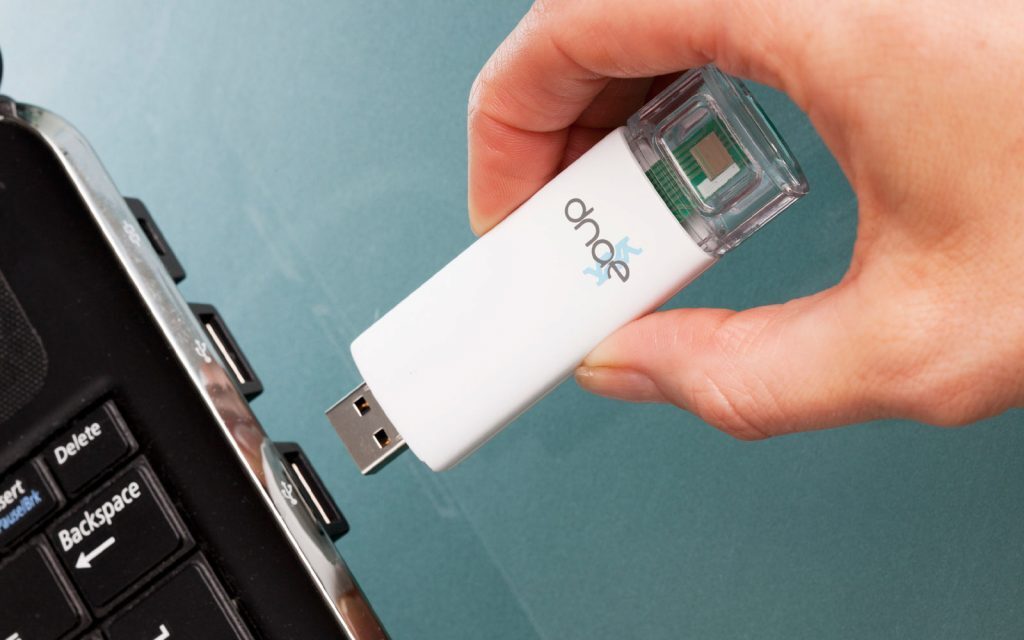Flash drive have come a long way. We can remember a time when securing a 128GB flash drive meant you never had to carry around a floppy disc ever again but you were expected to pay through the nose for that privilege. Now they’ve all but replaced optical media as well and the technology is even branching out into the medical world. Case in point: this flash drive able to detect the levels of HIV in a person’s blood.
The unnamed device, a development between Imperial College London and a company called DNA Electronics, is able to detect the levels of HIV in someone’s blood. The analysis is performed using a very small amount of blood, which is analysed and which returns a result in less than 30 minutes. The intent for the disposable flash drive is that HIV-positive patients will be able to keep an eye on their own blood levels at home, allowing for close maintenance on the progress of anti-retroviral drugs. It will also allow for fast tests in locations that don’t have the resources for speedy turnaround of full-scale blood tests, with sub-Saharan African being singled out as a possible area that could benefit from simple HIV monitoring.
How it works is that a drop of blood is introduced into the device, which in turn triggers an electrical signal in response to the presence of HIV. This signal is translated by software running on the computer that the flash drive is plugged into, allowing for quick readings of the amount of the virus present without needing to resort to a lab. The device has shown itself to work at about 95% accuracy and the flash drive concept is being turned to other diseases, like hepatitis, fungal sepsis, and antibiotic resistance being in the crosshairs already.
What hasn’t been detailed is when we’ll see this outside of a testing area. It’s still in the research phase but hopefully we’ll see this medical tech, as well as permutations of it, on the market sooner rather than later.
Source: Imperial College London via Engadget
